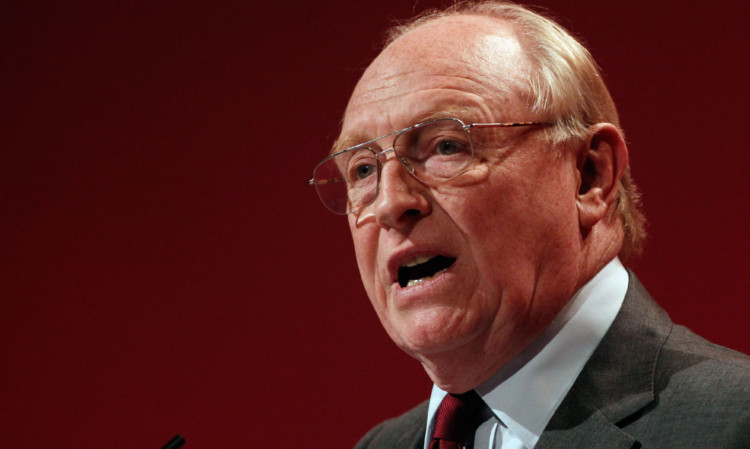
Former Labour leader Neil Kinnock has claimed the UK “has nothing to show” for decades of North Sea exploration and called for the creation of a sovereign oil fund.
Lord Kinnock said it was “a tragedy and a regret” that an oil fund, similar to Norway’s, hasn’t been created to invest North Sea tax revenues for future generations.
In a fierce attack on Margaret Thatcher, Kinnock said the late Tory leader squandered the potential of the country’s oil revenues in “one of the most untransparent and unfaithful acts of modern government”.
And in a move which is sure to be met with delight by the SNP, Lord Kinnock said it was not too late to create a fund, adding the money could be ring-fenced to develop new and greener energy supplies.
In an interview with Holyrood Magazine, Lord Kinnock said: “It wasn’t just that we didn’t do the sensible thing and establish a sovereign wealth fund, a renovation fund and a compensation fund like the Norwegians did, but that in the end, this country had nothing to show for it all.
“The Tories didn’t underplay the value of oil, they completely obscured it whilst taking the swag. I think it was one of the most untransparent and unfaithful acts of modern government, in terms of the way they treated oil and its potential.
“If we’d had a sovereign fund, it would have made it much more difficult for Maggie to squander the revenues, which some people put at more than £200 billion, certainly well over £120 billion.
“That was an obvious resource for the renovation of the social and economic infrastructure schools, hospitals, old people’s homes, motorways, computers.
“Whatever, we had nothing to show for it because it was all given away in tax concessions, most of which were exported. A sovereign fund would either have made the UK much better equipped or it would have been a fairly decent nest egg to withstand the pressures that came in 2007 and 2008.”
In 1975, Lord Kinnock, then a backbench MP, travelled to Norway with the Select Committee on Nationalised Industries to see that country’s response to its North Sea oil finds.
“I guess what it did was bring home to me the potential of this new-found resource for the UK,” he explained.
Lord Kinnock then tried to persuade anyone who would listen of the “compelling logic” of Norway’s approach of having a hands-on role for the State in the then fledgling industry and investing the profits for future generations.
Lord Kinnock claimed he then made concerted efforts to persuade his Labour colleagues in government, including the Prime Minister, Harold Wilson, and his soon-to-be successor, Jim Callaghan, to publish a White Paper based on creating an oil fund but the efforts came to nothing.
He continued: “In retrospect, I could have done a lot more. Oil was the big one which I had identified, to the extent that I said to Callaghan, ‘We have to stop the b*****ds getting their hands on it,’ and I should have just tried harder.
“Not doing something was a massive lost opportunity. It was a tragedy and, of course, a regret.”
But the former EU Commissioner said any time in the next 20 years “will not be too late” to set up an oil and gas fund.
He explained: “Obviously, a fund couldn’t make up for the gigantic sums that have been used as general revenues and it wouldn’t get near to meeting the whole cost of developing and implementing alternatives.
“But dedicated investment would be a very good, transparent way of generating growth while meeting some of the bills for modernising and cleaning energy supplies.”
Lord Kinnock, who opposed devolution, urged Scots to vote No in next year’s referendum claiming a Yes vote would “effectively disable the British Labour Party” and leave England and Wales to be governed by the Tories.
This interview was taken from the latest edition of Holyrood Magazine, which is published tomorrow.

Enjoy the convenience of having The Sunday Post delivered as a digital ePaper straight to your smartphone, tablet or computer.
Subscribe for only £5.49 a month and enjoy all the benefits of the printed paper as a digital replica.
Subscribe